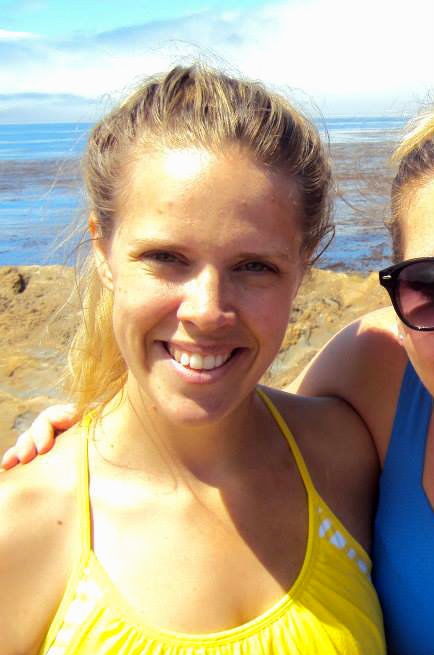Frank Sex Talk: Catching up with Dr. Ruth

Get the world’s most fascinating discoveries delivered straight to your inbox.
You are now subscribed
Your newsletter sign-up was successful
Want to add more newsletters?

Delivered Daily
Daily Newsletter
Sign up for the latest discoveries, groundbreaking research and fascinating breakthroughs that impact you and the wider world direct to your inbox.

Once a week
Life's Little Mysteries
Feed your curiosity with an exclusive mystery every week, solved with science and delivered direct to your inbox before it's seen anywhere else.

Once a week
How It Works
Sign up to our free science & technology newsletter for your weekly fix of fascinating articles, quick quizzes, amazing images, and more

Delivered daily
Space.com Newsletter
Breaking space news, the latest updates on rocket launches, skywatching events and more!

Once a month
Watch This Space
Sign up to our monthly entertainment newsletter to keep up with all our coverage of the latest sci-fi and space movies, tv shows, games and books.

Once a week
Night Sky This Week
Discover this week's must-see night sky events, moon phases, and stunning astrophotos. Sign up for our skywatching newsletter and explore the universe with us!
Join the club
Get full access to premium articles, exclusive features and a growing list of member rewards.
MONTREAL—For someone who calls herself "old fashioned and a square," Dr. Ruth sure talks frank about sex.
It's something we should all do too—the more the better—or else risk remaining ignorant from an early age about the most natural workings of our bodies, the affable sociologist argues.
"Most of what I do is bury sexual myth," Westheimer said in a lecture here this week. "It is important not to let anyone grow up believing those myths."
Taking her own advice, the famed sex therapist spoke bluntly, but always with her trademark humor, about everything from premature ejaculation to g-spots to an attentive but small crowd of more than 100 at the gathering of the American Sociological Association.
Larger than life
The key to achieving what Dr. Ruth calls "sexual literacy" in society is not mincing words about what goes on in the bedroom, even with children. It's something people are getting better at, she said.
"People do use very specific vocabulary [now], though the problems have not changed," Westheimer told LiveScience in an interview after the talk. She has plenty of material to use for comparison, with her now-sporadic radio program passing its twenty-fifth anniversary. Callers to her show are usually just relieved to get their issues out in the open, she said.
Get the world’s most fascinating discoveries delivered straight to your inbox.
Despite standing just 4'7", it is easy to see why Dr. Ruth has cultivated such an enduring, larger-than-life persona. Even in a small group she plays her naughty grandmother schtick to its fullest, always laughing and veering off on tangents to repeat the nuggets of advice she considers most significant.
From morning 'til night
One also gets the sense that Westheimer is still enamored with her fame and her position as a respected authority on sex. Asked about the growing problem of censorship in the media, she replied: "Whenever I see Hugh Hefner…he loves me…I say ‘thank you for what you have been doing' because he has a foundation that takes particular care of free speech," she said, adding "I don't care what he does with his bunnies; I don't ask him."
Though she cautions people must be able to distinguish the line between fantasy and reality, Westheimer also credits risky television for opening up a dialogue about sex.
"Talking about it from morning ‘til night has an effect," she said, noting that sexually charged shows like "Sex and the City" made women feel they could talk more openly on the subject, both with friends and at home with their boyfriends or husbands.
"That kind of sexual literacy, of really knowing what happens or really knowing what it means to be sexually satisfied, goes hand-in-hand with this more open vocabulary," she said, speaking slowly as she did whenever making an important point.
No sex in schools
The media representations and growing openness about sex in society don't match the government or educational approach to the topic, however, said Westheimer, who herself still lectures part-time at Princeton and Yale universities.
"It is very sad that there are universities that do not have sexuality courses," she said. "Every school should have discussions about sex."
With the help of volunteers, elementary and high schools could remain open in the evenings and on weekends in order to teach sex education, Westheimer argues.
To each his own
The onus still lies with parents to relay most birds-and-bees wisdom to children, she said, so it's important that they are armed with the correct information, too.
For the 78-year-old Dr. Ruth, that's meant keeping up with the practices and lingo of the modern sexual age. She's resisted calls by some journalists to make way for younger experts, clearly unfazed by the new generation of issues that she's encountering—including a favorite story involving a very creative use of onion rings.
"Anything that two consenting adults want to do in the privacy of their kitchen floor is alright with me," she laughed.
- The Sex Quiz: Myths, Taboos and Bizarre Facts
- Love and Sex Influence Disease Evolution
- Study: Sexual Desire is in Your Genes
- Survival Skills: Why Sex is Good
- A Brief History of Human Sex
 Live Science Plus
Live Science Plus











